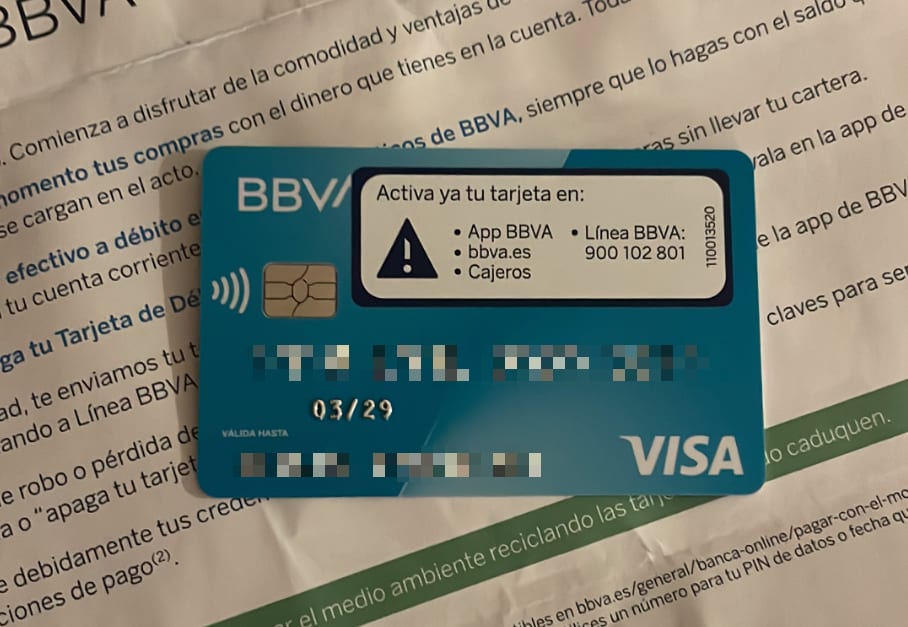Why Spain May Not Be For You
Written by Nadia Podrabinek
Hello, my name is Nadia. I usually write about traveling (there are so many places to fit all the lifestyles), relocation, and living in a foreign country (adapting to a different culture). My travels stretch beyond Spain, with journeys to the US, Italy, Norway, Portugal, and France. Relocating to Spain in 2018, I lived in cities from Barcelona to Madrid, currently calling Valencia home. Follow me on Twitter, Facebook, Instagram, or LinkedIn! ... show more

As someone who has experienced life in Spain and has seen many expats come and go, I’ve gathered insights on why this beautiful country might not be the perfect fit for everyone.
While Spain offers a lovely culture and a laid-back lifestyle, it’s important to consider various factors before making the move, especially if you are in your working years or have a family.
And this – if you need convincing to move to Spain, I am sure it is already not a good idea for you.
Before committing to a move
- Being an immigrant and staying away from family & friends is not easy.
- Job market is not great, especially if you have to go for low qualified jobs.
- Housing prices are rising, not the buyer’s market at the moment.
- High business costs, taxes, and lots of regulations, especially if you are entrepreneur.
- Bureaucracy: Banks and paperwork take time. And this “We don’t work in the afternoons.”
- Nobody seems to know how to be on time (but not always, haha).
What people say on Reddit
The bureaucracy gets a second vote, but not just the government, also the banks, the internet companies, the mobile phone companies etc. Everyone’s job has such little scope that they don’t take any responsibility for anything. They just say that they can’t help you and then offer no guidance or direction or assistance at all.
Masty1992
Man as a person that was almost legally blinded out of one eye by the lack of care, mixed with my horrible experience in with another health issue in southern Spain, I have come to be terrified of the public Spanish healthcare system. Not to mention how my friend is going through some serious stuff and they don’t give a rats ass. By thing point I think word of mouth is keeping the whole ”best healthcare system” trope.
bzngabazooka
Spanish bureaucracy is consistently ranking among the best in the EU. The changes in legislation and digitalization have made it pretty bearable, unless you need to deal with local government. It’s not good, but it could be way worse.
raultierz
The lack of respect and social consciousness. Nobody gives a shit to put the trash bag in the container. Clean up after your dog. Take the volume down. Spaniards are great at building families and taking care of each other within those groups but anybody outside is a complete trash to them.
kowwalski
So, here are the most obvious moment you might want to be aware of:
Economic and professional struggles
TL;DR: High taxes, low salaries, and a limited local job market. If you are not well off financially and not working remotely, you’d better have a plan “B.”

Also, if you are early in your career and want good opportunities to advance – you might not like the idea of moving to Spain!
Salaries here tend to be lower than other parts of Europe and North America. The job market is not as dynamic, which can be a significant challenge for young professionals. Between lower wages and high taxes, it seems tough to get ahead financially.
Also, the high costs and bureaucracy of running a business in Spain seem too daunting. You might want to live somewhere that makes it easy for entrepreneurs to thrive.
Family considerations
TL;DR: If you are moving form other continent, missing friends and family is inevitable.
Being far from close family back home would be tough. As much as you’d love the Spanish lifestyle, you’d miss watching your nieces and nephews grow up from a distance. Holiday gatherings just wouldn’t feel right over video chat.
Questionable school system
TL;DR: Choosing a school can be overwhelming.

If you have young kids, the school system is make-or-break. Also, support for children with special needs lags behind other developed countries. If you happen to move to Valencia, going to public school will bring you additional headache like learning Valenciano and religion classes (Catholics).
Here is some additional information about schools in Spain
There are three types of schools: public, semi-private (concertados), and private.
Public Schools: In Spain, public (públicos) schooling is free up to university, though parents must buy their children’s school supplies, including textbooks. Admission is based on a points system and catchment area. State schools follow a uniform format and regulations nationwide but vary in holidays, weekly schedules, and languages due to Spain’s autonomous regions. Primary schools have a 5-hour continuous day or a split day with a 2-hour lunch, while secondary schools typically run from 8/8:30 to 15:00/15:30. These secular, co-educational schools may offer optional religious classes, and uniforms are not mandatory.
Semi-Private Schools: Concertados, introduced in 1985 and serving about 26% of Spanish pupils, are government-funded schools with a monthly fee, akin to academies or charter schools in the UK and US. They offer more freedom in curriculum and methodology but must adhere to public administration rules. Admission is similar to state schools. The primary language is Spanish (or Catalan, or even Valencian). These schools, which may be religious or secular, co-ed or single sex, usually require uniforms and often follow a split day schedule.
Private Schools: Privados are fee-based and offer a diverse range, including parochial, bilingual, international, and foreign schools. They primarily teach in Spanish or the region’s co-official language, except for bilingual or international schools. Around a third of children in Spain attend private schools. International schools, which are prevalent in Spain, teach an international curriculum like the IB or a curriculum from another country, often have higher fees, and are usually located outside city centers. These schools can be religious or secular, co-ed or single sex, with uniforms generally required. It’s advisable to start the application process early due to high demand.
Cultural and daily life adjustments
TL;DR: Sometimes, it’s hard to get things done

Dealing with bureaucracy and poor customer service is a common complaint among expats in Spain.
Even everyday tasks like opening a bank account, fixing a leaky pipe, or ordering a cake can become long, frustrating sagas with unreliable service providers. The good thing – it is not always the case!
Still, fixing the draining might be a real struggle, and it is quite often when you see unmotivated workers. So, make sure you have patience and extremely low expectations when it comes to getting things done efficiently.
Healthcare and public services
TL;DR: Healthcare is good, by the way! You might need to adjust, though.
Can’t complain, really. Especially if you are coming from the US, the healthcare system is much more efficient, cheap, and reliable. Although, adjusting to it and other public services can be a challenge.
Here is a quick comparison of healthcare in Spain vs the US:
- Cost – Healthcare in Spain is much more affordable than the US. Spanish residents get free or low-cost public health coverage through the national health system. Out-of-pocket costs are a fraction of what Americans pay even with insurance.
- Access – In Spain, coverage is universal and residents can access primary care, specialty care, and hospitals readily. Wait times can be longer for non-urgent needs compared to the US. In the US, millions are uninsured and underinsured leading to barriers in access.
- Quality – Spain provides high quality care: Doctors are well-trained and facilities well-equipped. The US has excellence in elite facilities and doctors, but quality varies greatly. Rural and lower-income areas often have poorer healthcare access.
- Health outcomes – Spain performs well on major health outcome metrics like infant mortality and life expectancy (source). Spain’s population is generally healthier than the US in metrics like obesity, heart disease, etc. Diet and lifestyle play a key role.
- Patient experience – Care in Spain is reasonably patient-centered. Yes, could be communication gaps due to language barriers, but still, overall experience is quite good.
The Bright Side of Living in Spain
Despite these challenges, living in Spain has its advantages.
The first and foremost, I think it’s the quality of life here which is way higher than in the US and Eastern Europe. And you can get on a plane and fly to Portugal, Italy or somewhere else in Europe within 2-3 hours.
Also, the country has excellent weather, rich culture, delicious food, and lots of social life elements.
The lower cost of living and the quality of life in scenic regions like Andalusia and Valencia are particularly appealing to those who seek a peaceful and happy retirement.
Personal reflections

From my experience, whether Spain is the right place for you largely depends on your personal circumstances and what you’re looking for in life.
It’s a fantastic destination for those seeking a relaxed lifestyle, especially after retirement.
However, for families and individuals in their prime working years, it’s crucial to weigh the economic realities and lifestyle adjustments. Maybe, if you’re working online, it’s still a decent choice!
